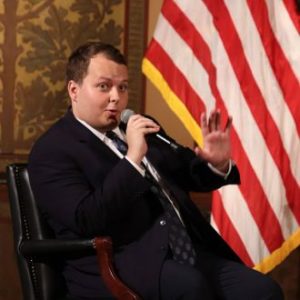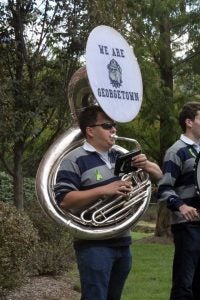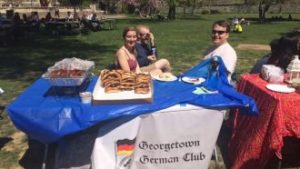
Alex Roberds (SFS’18, MAGES’19) arrived at Georgetown as an undergraduate with a long-standing interest in Germany and Russia, and through classes and internships built on this passion. He now studies Russian interference operations and European energy studies through the Master of Arts in German and European Studies (MAGES) accelerated program, in which he completes his undergraduate degree and graduate degree in five years. Roberds, originally from St. Louis, Missouri, has “always been interested in the outside world.” He remembers being fascinated by Ancient Greece and the Cold War as far back as elementary school. He started learning German in middle school, and “the rest,” he says, “is history.”
When it was time for college, Roberds was looking at a number of schools in D.C., but, ultimately, it was Georgetown: “I absolutely fell in love with Georgetown. I visited a lot of great schools, but none of them ever made me feel at home like I did at Georgetown.” Throughout his four years at Georgetown, he’s managed to find a family in the pep band, playing the tuba and conducting: “Pep band was always my number one thing (outside of classes, of course), serving in leadership for seven of my eight semesters. Pep band quickly became my family on campus, and I still consider many of them my closest friends.” He was also a part of the Men’s Ultimate Frisbee team, and of course, the Georgetown German Club.

